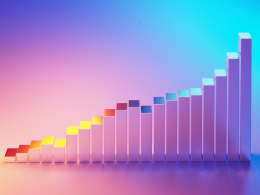by Eddy Elfenbein, Crossing Wall Street
Here’s an update to a study I’ve done before. I wanted to see what’s been the impact of inflation on the stock market.
I have the monthly stock market performance and inflation data going back 92 years, which is 1,104 months. I sorted the months by inflation, low to high. I then separated the data into eight buckets of 138 months each.
This is how the stock market has performed at different levels of inflation. To make it easier to read, the stock market’s return is annualized and adjusted for inflation.
Here’s what I got:
| Inflation | Range | Stock Performance |
| Under | -2.47% | 6.98% |
| -2.47% | 0.00% | 13.29% |
| 0.00% | 1.49% | 14.41% |
| 1.49% | 2.91% | 18.05% |
| 2.91% | 4.04% | 9.79% |
| 4.04% | 6.01% | 9.56% |
| 6.01% | 8.77% | -4.33% |
| Over | 8.77% | -8.34% |
In other words, when deflation runs below -2.47%, the stock market has averaged an inflation-adjusted gain of 6.98%.
The peak performance is when inflation runs between 1.49% and 2.91%. The stock market has averaged more than 18% annualized (again, that’s adjusted for inflation).
As you can see, stocks aren’t fans of deflation, but they really hate inflation. The turning point seems to be an inflation rate of 5.72%. Stocks do well up until then, but anything above that is bad news.
At the low end, stocks have done poorly when deflation runs below 5.53%. That’s lower than I would have expected. Above that, stocks have done well.
The sweet spot seems to be inflation between 0% and 3.1%. The stock market has averaged 16.2% at that rate of inflation.















